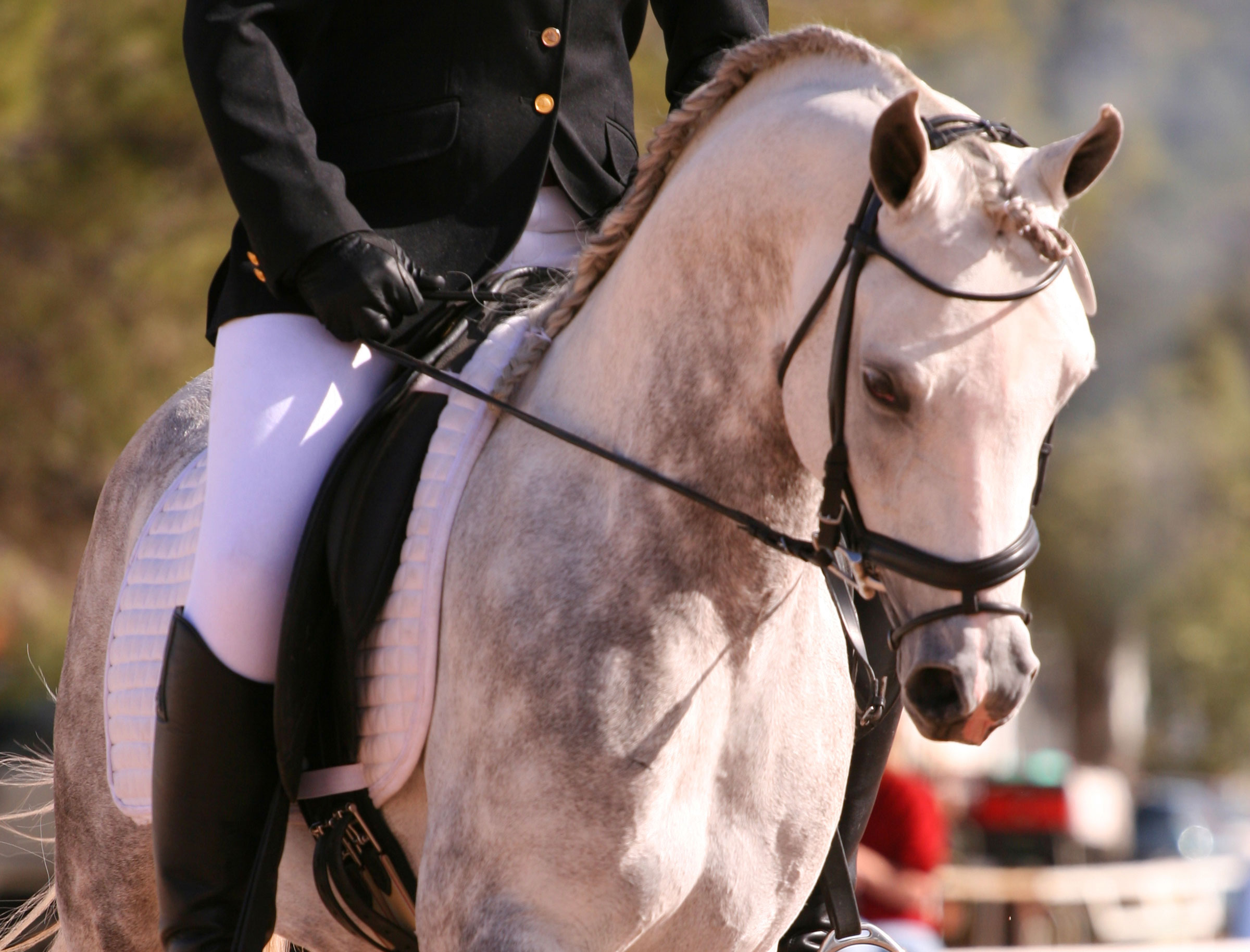
Working horses need to eat more than idle horses to fuel their efforts. How much more depends on the level and rigors of exercise.
The objective of proper feeding is for your horse to have plenty of energy while also maintaining an optimal body condition score of 5 (scale of 1-9) and fitness. A horse that is too thin is low on energy reserves, while an overweight horse has more trouble dissipating the heat load created during exercise. Extra weight also puts more strain on the musculoskeletal system.
Horses should consume 60% of their daily diets in the form of roughage—hay and/or pasture. Minimum fiber requirements for healthy intestinal function depend on the horse consuming at least 1% of its body weight per day as roughage. So, a 1,000-pound horse needs to eat a minimum of 10 pounds of forage each day.
Vitamins and mineral requirements also increase with increasing exercise output. Vitamin B is important to energy metabolism, vitamin E is essential for muscle function, and electrolytes (sodium, chloride, potassium, magnesium) lost in horse sweat must be replaced.
Hay, and especially legume sources, provides potassium and magnesium. Sodium and chloride are provided with free-choice salt supplementation. Caution should be taken not to over-supplement vitamins and minerals, as too much can have deleterious effects.
A very important basic need is the availability of water. A horse at rest needs a minimum of 2-4 pints of water per pound of hay, i.e., 7-1/2 gallons per 20 pounds of hay consumed by a 1,000-pound horse each day.
With exercise and warm weather conditions, this need might amplify to 20 gallons or more each day.
For most exercise efforts of recreational equestrian endeavors, horses should have free-choice access to clean, unfrozen water and be allowed to drink as much as they desire.


